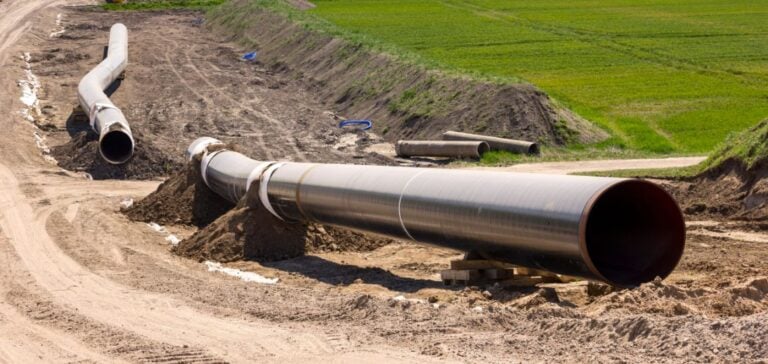The European Union is reinforcing its energy diversification strategy by supporting the development of an unprecedented gas corridor linking Central and Eastern Europe to liquefied natural gas (LNG) infrastructure in the Mediterranean. This project, designed to reduce European reliance on Russian gas, could benefit from a significant influx of American LNG, essential for ensuring energy security in the region.
This gas corridor, developed in collaboration with several gas transmission system operators from Central and Eastern Europe, is expected to transport increased volumes of regasified LNG to markets that have historically been highly dependent on Russian gas. The project aims to expand existing infrastructure to ensure reliable LNG supplies and meet the growing energy demands of the region, especially as Russian gas deliveries may cease by the end of 2024.
A Project at the Heart of EU Energy Policy
This gas corridor aligns with the objectives of the REPowerEU plan, through which the European Union is committed to gradually reducing its consumption of fossil fuels from Russia by 2027. According to a European official involved in the project, this new infrastructure addresses the urgent need to reorganize gas flows throughout Eastern and Central Europe in anticipation of the end of the transit contract between Russia and Ukraine, scheduled for late 2024.
The project also relies on the cooperation of the Central and South Eastern Europe Energy Connectivity (CESEC) High-Level Group, an initiative established in 2015 to promote regional energy connectivity. This strategic collaboration among the region’s countries has facilitated cross-border projects to meet energy needs and reduce dependency on a single supplier.
The Strategic Role of American LNG
The importance of American LNG in Europe’s energy transition became crucial in 2022 when the U.S. intensified exports to Europe to compensate for the energy deficit caused by reduced Russian supplies. According to data from S&P Global Commodity Insights, Europe has imported about 149.72 million tons of American LNG since early 2022, making it an essential source for the EU’s energy balance.
With this new gas corridor, LNG infrastructure in the Mediterranean, such as the Alexandroupolis terminal in Greece, will play a key role in transporting and managing LNG imports into Europe. Venture Global, a U.S.-based LNG export company, recently signed an agreement to use this terminal, supplying 25% of its regasification capacity starting in 2025. Greece, along with other Eastern European countries, will directly benefit from this American gas supply, offering an alternative to Russian sources.
Challenges and Opportunities for Energy Supply
Demand for LNG in Europe remains strong despite a reduction in Russian gas imports by pipeline. According to the European Commission, Russian pipeline gas imports have dropped by 59% between early 2021 and 2024. However, the LNG market continues to see a slight increase in the share of Russian gas in EU imports, even as prices rise sharply due to the volatility of the global energy market.
With this gas corridor project, the European Union hopes to meet growing demand while mitigating price fluctuations. Central and Eastern European countries, in particular, will be able to strengthen their energy resilience by diversifying their sources of supply, thus helping to stabilize their markets while reducing reliance on Russia.






















